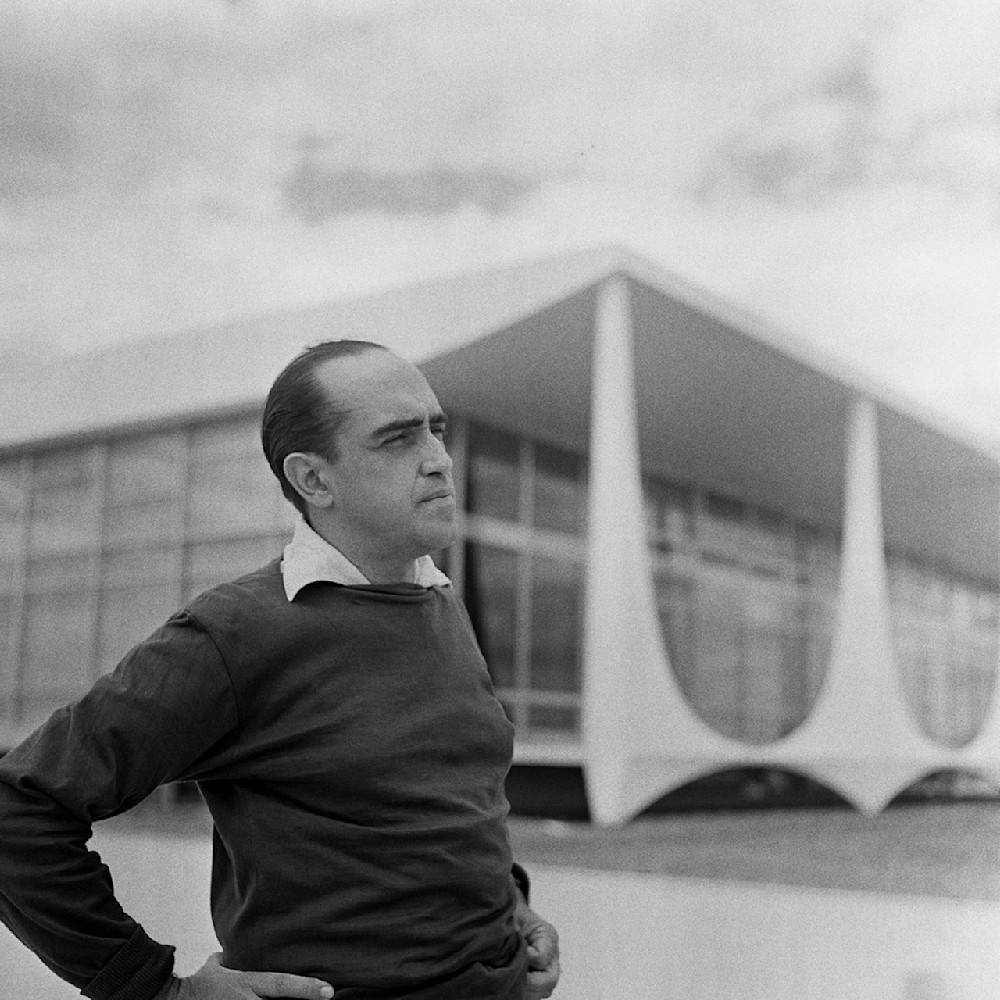
Oscar Niemeyer
Oscar Niemeyer is arguably one of the most influential architects of the 20th century. Born in Rio de Janeiro on December 15, 1907, he attained his undergraduate degree from the National School of Fine Arts in 1934. Soon after, Niemeyer went to work at the studio of Lucio Costa and Carlos Leão, where he worked in close contact with Swiss architect Le Corbusier. In 1939 he traveled to the United States, to collaborate on the design for the Brazilian Pavilion at the New York World’s Fair - a work that disclosed Brazilian modern architecture to the world. However, it was only with the Pampulha Complex, designed in 1940, that formal originality and freedom were to define Niemeyer’s architectural style based on the exploration of curved, free-flowing forms, and resorting to the plasticity of reinforced concrete. Starting with the Pampulha, Niemeyer proceeded with a prolific production for which he created his own vocabulary: slabs with unexpected contours, inclined façades, V-shaped piers, and increasingly broader spans. Over the course of his career and life Niemeyer received international recognition for his participation in the design for an impressive number of institutional and residential buildings, in Brazil and abroad, including the commission to contribute to the new Brazilian capital. After a period of exile, Niemeyer returned to Brazil in the late 1970s where he continued to design iconic spaces. Between 1997 and 2007, the architect conceived nearly 100 award projects around the world solidifying a decisive and singular place in the history of architecture. After a long hiatus, 2013 marks a new beginning for Niemeyer’s iconic furniture designs, with select pieces being exclusively re-issued by Etel and presented at AVENUE ROAD.